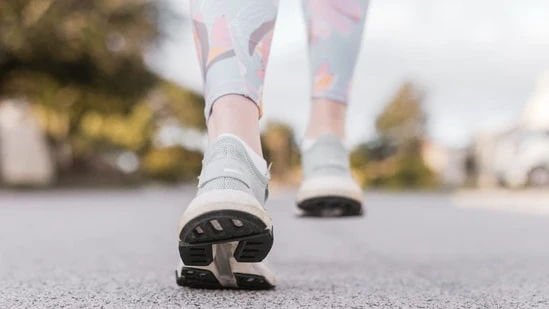If you are squeezing in a short, brisk walk during your day, science just gave you a reason to keep it up. A massive new study tracking nearly 80,000 adults over two decades found that just 15 minutes of fast-paced walking a day is linked to a nearly 20% lower risk of death, reports Studyfinds.org.
The research, published in the American Journal of Preventive Medicine, stands out not just for its size but for who it studied. Most past studies focus on middle-class white Americans. This one? It zeroed in on low-income Black adults in the South-people often left out of health research despite facing higher rates of chronic disease and premature death.
Researchers at Vanderbilt University Medical Center wanted to see what kind of impact everyday movement had in real-world settings, where fancy gyms and workout apps aren’t the norm.
“Fast walking as little as 15 minutes a day was associated with a nearly 20% reduction in total mortality,” the team wrote. In contrast, walking slowly-even for more than three hours-only shaved off about 4%.
Who was in the study?
The researchers followed 79,856 people between the ages of 40 and 79 from 2002 to 2022. Most were recruited through community health clinics in 12 southeastern states. Roughly two-thirds were Black. More than half lived on less than $15,000 a year. During the 17-year follow-up, 26,862 participants died. But among those who walked briskly every day-even for just 15 minutes, death rates were significantly lower.
And the speed of walking mattered more than how long they walked. The biggest health payoff came from short bursts of intense walking-climbing stairs, fast-paced walks, anything that made the heart work harder. Slow walking (like casual strolls or shuffling at work) did not pack the same punch.
Heart health gets the biggest win
The most noticeable drop in death rates came from heart disease, which is not surprising. Brisk walking gets the heart pumping, improves circulation, reduces inflammation, and helps regulate weight and blood pressure.
It also does not cost a dime. That is the key for underserved communities, where access to gyms or safe outdoor spaces is often limited.
Still, the study was not perfect. Participants only reported their walking habits once, at the beginning. Researchers could not measure changes over time. And since it is observational, it cannot prove cause and effect-just a strong link.
But the takeaway is loud and clear: A short, brisk walk could be one of the easiest ways to boost your odds of living longer-especially if you are in a community that is often left out of the health conversation.
FAQs
How long should I walk to see health benefits?
Just 15 minutes of brisk walking a day showed major benefits in the study.
Does walking slow help too?
Slow walking helped a little, but not nearly as much as brisk walking.
Who was included in the study?
The study tracked mostly low-income Black adults in the southeastern U.S.
Is brisk walking better than going to the gym?
It is not a replacement, but brisk walking alone showed strong health benefits.
Do I need special gear to start?
No, just a safe place to walk and a bit of consistency.
